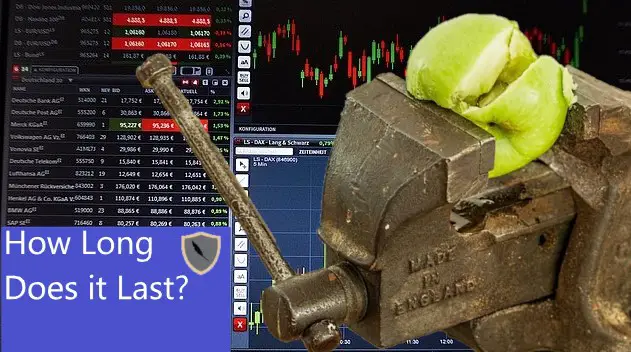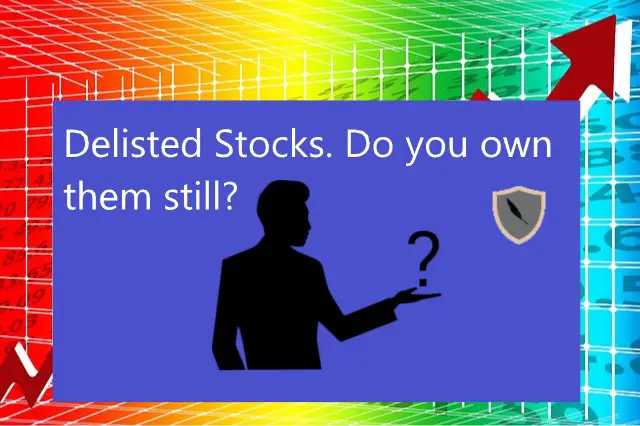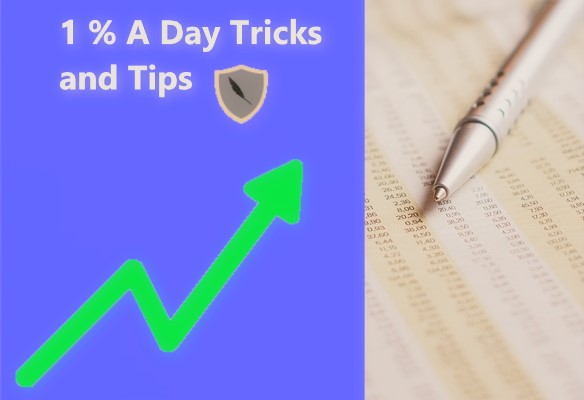Over the past 20 years retail traders have started to develop their own lingo. Understanding this language is vital to understanding how the herd is investing. Here I give you the most popular words and their definitions so that you can better position an investment to capitalize upon evolving trends.
Further, if you are building algorithms to predict investor sentiment then understanding these words is vital. If your algorithm hits a word such as “FUD” and does not understand it then you run the risk of a crash.
The retail trader words you need to understand are MOASS, DD, Buy the Dip, Moon, Yolo, Tendies, Diamond Hands, Paper Hands, STONK, FOMO, APE, Bagholder, and FUD. Each of these words symbolize something different to retail traders and causes them to start to invest a certain way. That’s why understanding these retail trader words is so important, you can figure out why people are investing.
Here at Chronohistoria I teach people how to generate above average investment returns. I routinely publish articles that go over investment research, methodologies, and tips/tricks so that you are better prepared to earn in the markets.
Feel free to sign up for the free newsletter if you want to remain up to date on everything.
MOASS
MOASS stands for “Mother of all short squeezes.”
When you see this word it means that retail investors believe that they can cause the stock’s price to rise suddenly. This in turn will cause short sellers to have to cover, which means they will buy at market value and further cause the share price to rise.
Here is an image of a “MOASS” that happened to GME in late January 2021. Enough retail traders started buying up the stock which caused short sellers to have to cover their position. (article from UNSW business school outlining the GME fiasco)
This is what a MOASS is, it’s a super short squeeze. If you start seeing MOASS thrown around by retail traders it might be worth checking out. If you know what you are looking for then you can make a pretty decent amount of money. At the very least you know that volatility will rise as other retail traders buy in.
DD
“DD” stands for Due Diligence.
Due Diligence (DD) is simply just financial research. When you see retail traders talking about performing DD then you should be aware that this is what they think is going to happen to a stock/asset. Some of these are pretty funny to read and others are really well thought out. (article from Virginia Law Review looking at power of DD in today’s economy)
Thanks to social media we can see what other people think of a retail trader “DD.” This is by looking at the total upvote or comment count on the research. This can be programmed into an algorithm and I know some investors/traders who have made a ton of money by having algorithms autoplay volatility positions.
Simply put, DD just stands for research done on a stock.
Buy The Dip
Whenever you see “DIP” in a retail trader post then it means “Buy the Dip.”
Here retail traders believe that an asset has reached its bottom price and will bounce back up. They hope to make a profit off the spread between the lowest price and the bounce price.
This is also called “Catching the falling knife” and it’s about as successful and risk averse as you think. When someone buys the dip they are hoping to get a stock/asset at an undervalued price to resell it shortly after for a profit. (here is an article written by the SIT outlining just how “effective” this strategy is)
However when enough retail traders “buy the dip” then we can actually see a stock correct in price trajectory. The secret is finding out how influential the retail traders post is. If the retail traders “dip” post has a lot of views then chances are it will become true.
Moon
“Moon” is simply just a stock or position that is about to explode upwards. Think of this as a rocket that is “going to the moon.”
Whenever you see a post by a retail trader that includes the word moon in it then it is highly bullish. Because of this and investors bias most of these posts will be shared around social media and become highly influential.
In the above image we see a post that references tweets from Lamborghini’s Twitter profile. In this case the retail traders think that because of these tweets a stock is going to shoot up in value or “go to the moon.”
If you are building an algorithm that is using retail investor sentiment then you should be aware of this highly bullish sign. Several funds have built algorithms that rank these bullish posts against each other to figure out what position has the most retail investors looking at it. (source)
Recently “to the moon” has started to filter into the world of finance reporting. In 2021 the Motley Fool started to include the wording “to the moon” in some of its online research articles to attract more retail investors. (source)
Simply put, “to the moon” or “moon” just is a very bullish green sign.
YOLO
YOLO stands for You Only Live Once. In the investing world this means that someone is throwing their entire net worth in a highly risky investment.
In the above image we can see someone who has “YOLO’d” their life savings into whatever WallStreetBets wants. They are splitting the investment 5 ways, so the top 5 most liked investments is what this guy’s life savings are going into.
Yolo’s can have considerable sway in investor sentiment. So long as the investor is not lying about their YOLO position then many other retail traders can start to mimic them. Building an algorithm around YOLO posts would be difficult but doable.
Simply put, YOLO is just a hail mary type of investment where someone puts everything they have in one position.
Tendies
Tendies stands for Chicken Tenders. Chicken Tenders can be best thought of as a form of a representation of profit. In the above image we see a DD post about Dole where the author claims that people will make “Tendies” or profit from the company.
When you see retail investors talking about making “tendies” then you can just replace that word with profit. This is one of the oldest slang words of retail investors that started way back in the early 2010’s.
The reason it’s called tendies is because of the famous subreddit WallStreetBets. Here WSB prides themselves on degenerate gambler decisions and their favorite food of Chicken Tenders or Tendies.
Simply put, tendies just means potential profit from a position.
Diamond Hands
The word diamond hands means a long term holder regardless of the current stocks financial situation.
This word can be best thought of as combining the action of holding a stock (hand) with the indestructible power of diamonds (strength). When you see retail traders bragging about diamond hands just be aware that they are holding regardless of what happens to the stock.
Diamond hands means that these retail investors won’t sell their position to either collect profit or cut their losses. For many retail investors diamond hands is a badge of pride so long as they are rewarded for their patience.
Paper Hands
If diamond hands meant holding no matter what, paper hands are the opposite. A paper hands investor/trader will sell as soon as their position starts to go against them.
The best way to remember this is that diamond’s are strong while paper is weak. Therefore if someone is paperhands they have weak hands, or are a weak stock holder.
In the world of retail trading being called paper hands is an insult. Because of this many posts you see online will call out and shame people who sold their position too early. This in effect is just a way of bolstering the cult like following around a certain stock or asset.
Simply put, paper hands just means the investor is a weak long term holder who cuts their losses.
STONK
The word stonk is just another way to say stock. It’s a meme version that demonstrates the author of the post or article is catering towards the retail investor crowd.
This word started in early 2021 when many people entered into the stock market due to the Gamestop short squeeze. Several memes populated around social media where instead of “stock” the word was STONK.
Since then the definition has stuck. Stonk just means stock.
FOMO
The word FOMO is an acronym that stands for Fear Of Missing Out. Simply put it is a desire to chase action on a stock and enter into a position simply out of greed or fear of missing an opportunity.
Lots of retail traders experience FOMO as they are watching a stock skyrocket in price. This is one the main driving forces of retail investors and once you understand how FOMO impacts intraday trading prices you can make a ton of money.
In fact several academic articles have explored how powerful FOMO is in driving stock prices. A good place to start is the 2018 article “Fear of missing out: prevalence, dynamics, and consequences of experiencing FOMO.”
The most important thing to realize is that retail investors will watch the market and like a gambler start to throw their money into a stock if they believe they can make a quick buck. As a stock’s price begins to rise or fall more people will FOMO into a position and cause the stock’s price to move faster, which in turn creates more FOMO. (source)
APE
In January of 2021 online chat rooms started calling other retail investors they liked Ape’s. This was because of a couple memes where monkeys were calling the shots in investors’ portfolios. Since then the name has stuck.
If you see someone called an Ape it is a good sign. This is the mating call from one retail investor to another. It’s how retail investors distinguish like minded people from the investing crowd.
Simply put, the word “Ape” can just mean a fellow retail investor who invests and thinks like I do.
Bagholder
The word bag holder refers to people whose position is now nearly worthless.
Bagholder is an older term stemming from the late 90’s where penny stocks would pump and dump their shares leaving investors holding the bags of worthless shares while the executives made off with all the money.
Nowadays bag holders in retail traders are just people who bought into another investors DD and took a highly risky position and lost. You never want to be a bag holder. It means that you lost nearly your entire position and don’t have a chance to make back your loss.
Simply put, bag holder is a bad definition you put on an investor whose position is worthless.
FUD
FUD stands for the acronym Fear, Uncertainty, and Doubt. Retail investors believe that anybody who talks badly about a bullish position is spreading FUD among investors.
Generally speaking anybody who counters a retail trader supported narrative can be claimed as spreading Fear, Uncertainty, and Doubt among other retail traders. This in turn hurts the investor sentiment surrounding an individual stock. (source)
It’s important however to read articles and DD that take a counter stance on popular rhetoric. This is because they might have included credible facts that would help better prepare retail investors to earn in the stock market.
Simply put, the word FUD is a negative term that means someone is trying to stop people from FOMOing into a stock.
Conclusion
There you have it. The most popular retail trader words. Just by understanding these terms and words you instantly prepare yourself to earn more in the stock market. However the secret is figuring out how to position an investment to capitalize upon retail investor sentiment.
Without understanding the above words it would be impossible to do that. This is because an algorithm can be built to assign values to these retail trader words so. A good word such as “ape” or “diamond hands” could be a +1 while a bad word such as “paper hands” or “bag holder” could be a -1. After webscrapping all the words on famous investing social media sites an algorithm could demonstrate investor sentiment.
Well that’s the theory at least. (source for academic article that goes into webscrapping and assigning values to words)
Here at Chronohistoria I teach people to generate above normal investment returns. I routinely publish articles that go over investment research, methodologies, and tips/tricks of the trade so that you are better prepared to earn.
Feel free to sign up for the free newsletter to remain up to date on all things investing.
Further, you can check out some of the other articles below.
-
How Long Does a Short Squeeze Last? (3 Answers)

What is the time frame for you short squeeze? Well here is everything you will ever need to know to determine how long it will last.
-
Why You Still Own a Stock After It’s Delisted and How to Sell It

Do you still own a stock after its delisted? How do you sell it? Don’t worry the stock is still worth money and here is how to sell.
-
Can You Make 1% A Day in the Stock Market? (3 Steps)

Making 1% a day in the stock market is hard but defiantly doable. Here are 3 simple steps to helping you achieve this return.
Until we meet again, I wish you the best of luck in your investment journey.
Sincerely,



